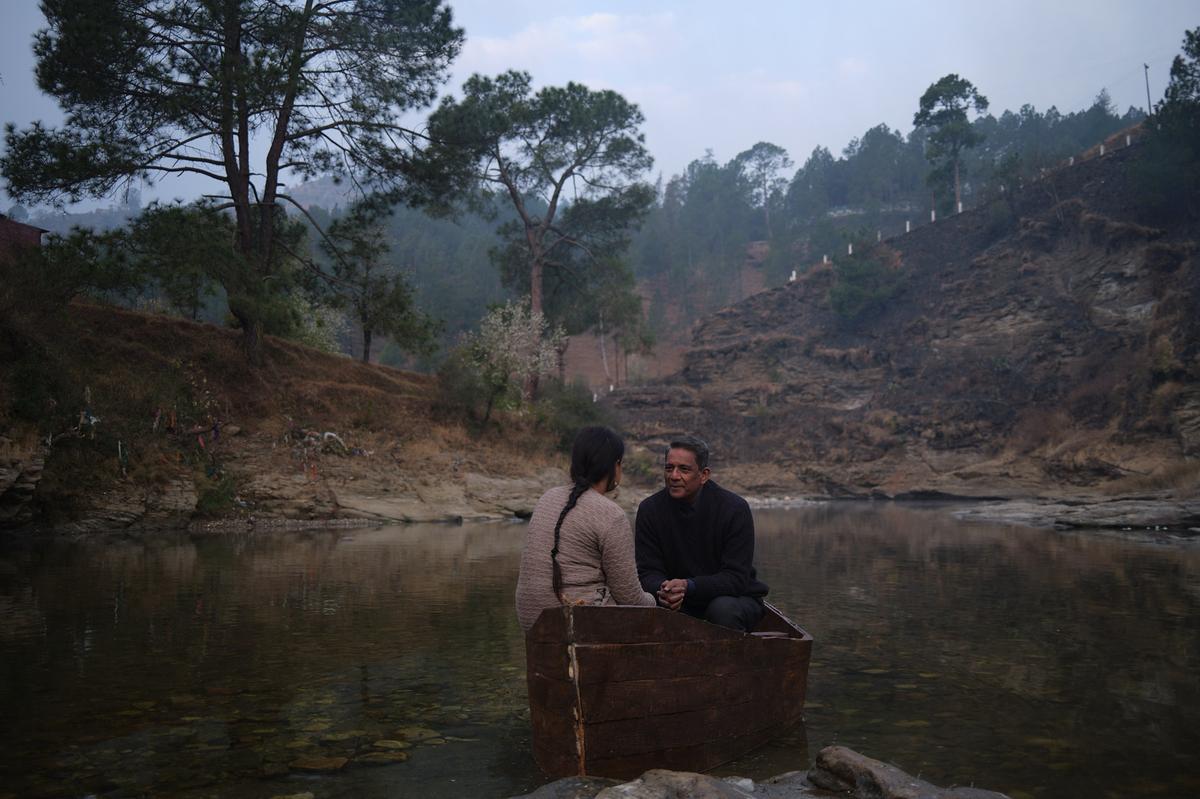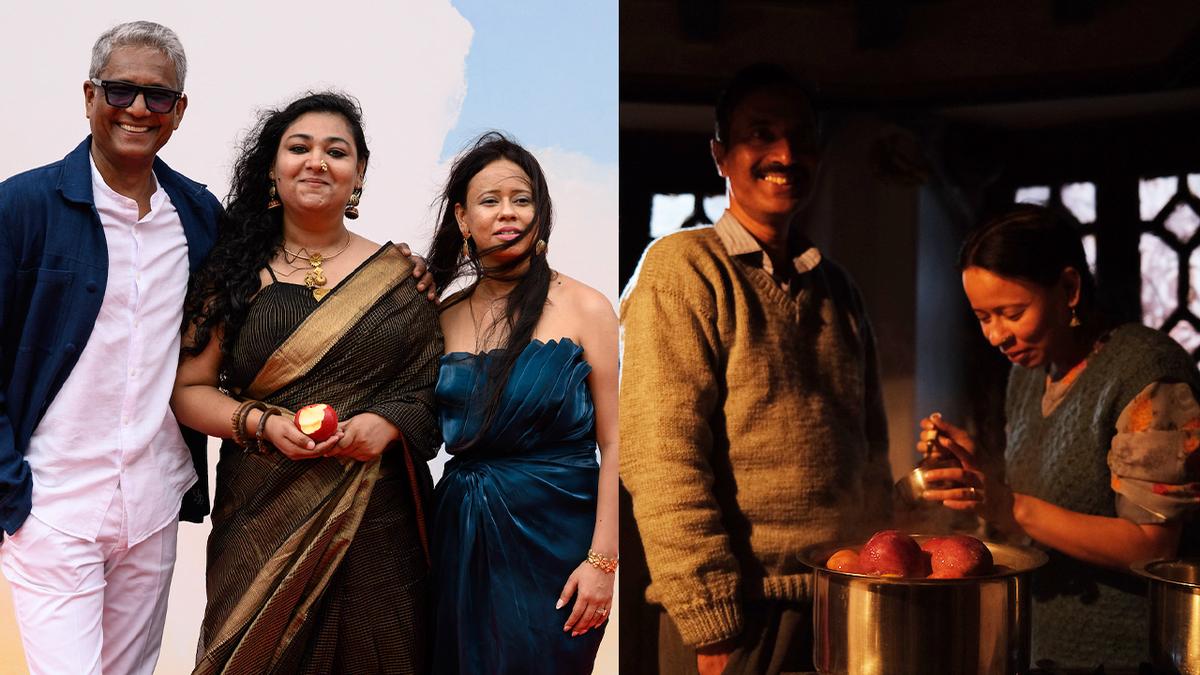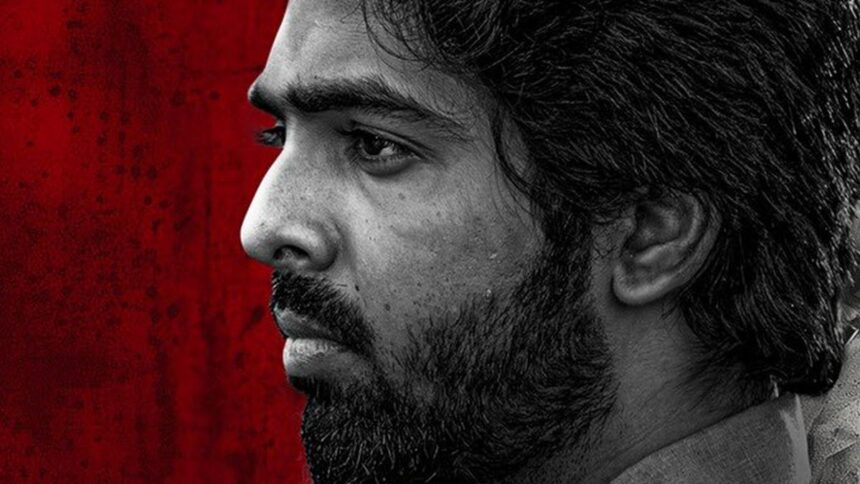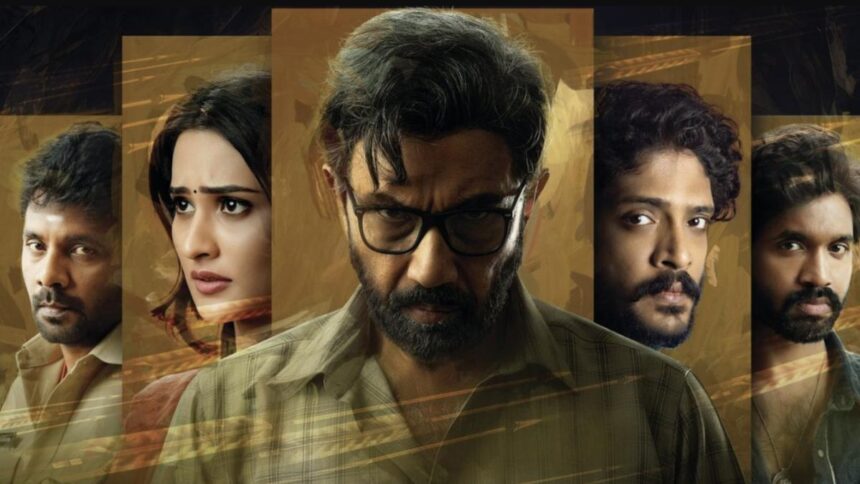In the last couple of years, the question of female desire has quietly found its way into cinematic conversations courtesy of strong, young voices. After Payal Kapadia’s All We Imagine As Light and Shuchi Talati’s Girls Will Be Girls, this festival season, Nidhi Saxena’s Secret of a Mountain Serpent takes forward the craving for companionship among ordinary women to new heights.
Set in the hills of Uttarakhand during the Kargil War, the film follows the lives of a section of isolated women in Almora whose husbands leave them yearning as they go to serve the nation on the borders. Barkha (Trimala Adhikari) is one such school teacher whose husband is a soldier. In his absence, she is drawn towards a writer called Mihir Guho (Adil Hussain). Using myth and magic realism, Nidhi transforms this one-line story into a lyrical exploration of female desire. “When it comes to the chain of sacrifices in society, female desire is at the top,” says Nidhi during a conversation over the phone. “And the Victorian morality affects the middle class the most,” she adds.

A Fine Arts graduate from a government college in Jaipur, Nidhi, grew up in the profession, making documentaries for Doordarshan and reputed NGOs that took her to the hills of Uttarakhand. “I discovered that a lot of youth in the region go to join the army, leaving behind lonely wives and widows. I developed a little bit of sympathy for them, but when I found that women in the villages have other partners and love interests, it made me question my morality. Is it possible? Is it fine? With time and age, I realised why I should shut down my desire for the one who is absent.”
A still from ‘Secret of a Mountain Serpent’.
| Photo Credit:
SPECIAL ARRANGEMENT
Nidhi set out to explore how the narrative of an army man being important for the nation could be a piece of fiction, and his wife’s desire could be a reality. “I found when he returns after a year for a few days and becomes the centre of the universe, the woman is not very comfortable as she is not used to his touch. It took me years to understand the dynamics of relationships.”
Nidhi uses speaking shoes as a metaphor for the moral surveillance that society puts on its women. “I wanted to show that when they go outside for work, society puts a moral surveillance on something that equips her to cross the boundary of home. Physically, Barkha has come out, but there is still something inside that is pulling her back, creating a feeling as if she has done something wrong.”
Outside, Nidhi creates a folklore where Barkha finds herself in a kind of Garden of Eden filled with forbidden apples, messenger birds, and a shape-shifting serpent. The fruit is traditionally a potent symbol of desire. Nidhi tells us that when she pitched the film to Alberto Barberra, the artistic director of Venice Film Festival, she carried an apple in her hand and walked with the rhythm of ‘go home’, words that Barkha’s footwear mutters when she walks on the wild side with Manik, the sweet talker, who carries the spirit of a serpent.
Magic realism is an integral part of Nidhi’s storytelling. Having grown up reading Fyodor Dostoyevsky, Gabriel García Márquez, and Vinod Kumar Shukla, she refers to Remedios the Beauty ascending to heaven while folding laundry, carrying white sheets with her, in 100 Years of Solitude as a source of inspiration. “The kind of closed societies we grow up in, magical realism gives us relief.”
Regarding the muffled male voice in the film, Nidhi asserts that for centuries, a group of men had been determining social morality and tradition. “It’s time they figure out things for themselves. I am asked why Sudhir doesn’t fight with Barkha when he discovers her transgressions. Had he been violent, it would have been easy for the audience to pick Manik for Barkha. Here, Sudhir cries when he cannot satisfy Barkha,” she explains.
Manik fills the emotional void in Barkha’s life, but the delicate conversation could be a façade, a skin that he would shed. “If you decide something for yourself, you can make a mistake. Snakes are smooth and shiny, but they are also dangerous. I believe women should have the freedom (to express) desire and desire for freedom. In the end, they don’t go to the snake, they go to the river!”
Enamoured of Adil’s layered performance, Nidhi relates that the seasoned actor came prepared to play a serpent without a prop. “There was a 14-minute sequence, where he made us forget the difference between Manik and the mythical figure. We could retain only 5-6 minutes of it, but it was an experience. He read up everything about the snake, including its memory.”

A still from the movie.
| Photo Credit:
SPECIAL ARRANGEMENT
Talking about the painterly cinematography, she says that her DOP, Vikas Urs, had just completed Sabar Bonda (this year’s Sundance winner) when he joined her. “His style was that of observation. He loves to look at things from a distance. It perhaps worked in the boys’ film. I told him Main dil ke andar utarna chahti hoon (I want to get into the heart),” chuckles Nidhi and goes on to explain how they used fire to create the magical light effects in a film made on a tight budget that came through the prestigious Biennale College Grant.
Nidhi is the second Indian filmmaker, after Shubhashish Bhutiani, who secured it for Mukti Bhawan almost a decade ago. Her first film, Sad Letters Of An Imaginary Woman, won the Asian Cinema Fund. Nidhi complains that big Bollywood producers are now seeking these funds, which are essentially meant for independent filmmakers. “I guess top festivals also seek the presence of popular names.”
ALSO READ: Mukti Bhawan: In search of salvation
Growing up in a middle-class household in Jaipur, with parents who instilled in her a love for literature and encouraged her to pursue her passion, Nidhi witnessed her cousins struggling in marriage. She wonders how society normalises the migration of a girl from one home to another. “When I fell short of money, I asked my working mother to give me the amount that she had saved for my wedding. She understood me.”
The Jaipur girl says she learnt her counting from “Ek Do Teen” (Tezaab) and is open to directing a Bollywood film. “I didn’t grow up watching Satyajit Ray, but I feel a generation of filmmakers led by the likes of Shoojit Sircar and Pradeep Sarkar have been able to break the formula and do their own thing within the mainstream milieu. I have scripts ready!”
Published – September 02, 2025 05:46 pm IST























